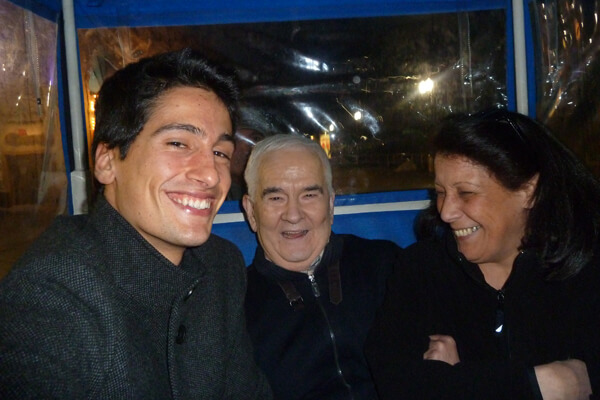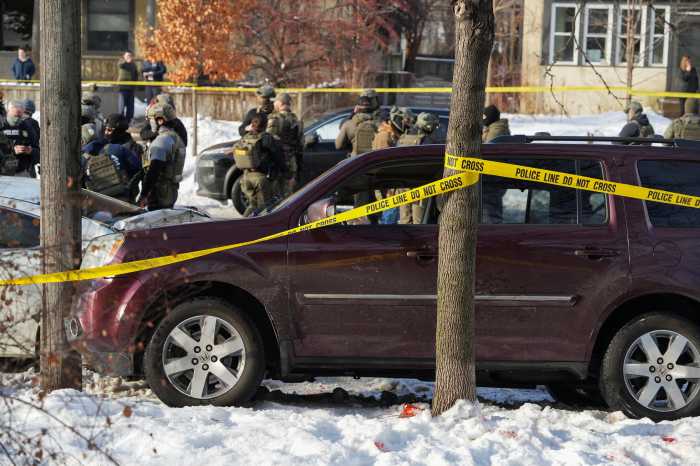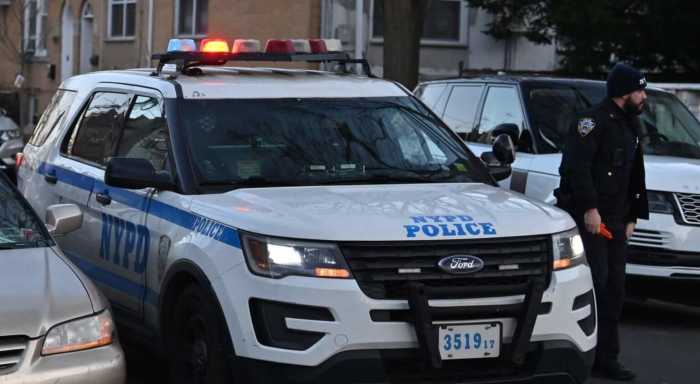Renato Seabra, Carlos Castro, and Wanda Pires during the week that Seabra gruesomely killed Castro. | MANHATTAN DISTRICT ATTORNEY'S OFFICE
The defense in the murder trial of Renato Seabra closed its case with a withering attack on the prosecution while asserting it had proven that the now 23-year-old Seabra was insane when he strangled, beat, and castrated Carlos Castro in a Manhattan hotel room in 2011.
And the prosecution, for its part, told jurors Seabra killed the 65-year-old Portuguese TV personality in a rage when the older man ended their relationship and said they would be returning early to Portugal from a New York City vacation, during which Castro introduced the younger man to modeling opportunities. Despite the testimony of two defense mental health experts and the introduction of notes from medical staff at three facilities where the defendant was treated after killing Castro, “no evidence” was introduced at trial that he “did not understand that his conduct was wrong,” the district attorney's office argued.
In his November 28 closing statement, David Touger, who is defending Seabra with Rubin M. Sinins, said, “The evidence is a tidal wave of information that Renato, when he was killing Carlos, was suffering from a manic psychotic delusion.”
Seabra is charged with one count of second-degree murder that alleges he intended to kill Castro. The defense countered saying that Seabra was insane and did not know right from wrong during the killing, so he cannot be held legally responsible.
An insanity plea is an affirmative defense, under which Seabra’s attorneys must prove their case by a preponderance of the evidence, which is a lower legal burden than beyond a reasonable doubt, the standard the prosecution must meet to prove its case.
Citing testimony from a psychiatrist and a psychologist, thousands of pages of medical records, and the gruesome nature of the crime, the defense wants the jury to infer that Seabra was insane when he committed the murder. Early in his closing, Touger held up a picture of a smiling Seabra and two photos of Castro’s lifeless body.
“We know who did it, we know what happened,” Touger said during his three-hour-long closing in Manhattan Supreme Court. “This trial is all about how we get from this photo to these photos.”
In the defense story, Seabra, just prior to the killing, rapidly developed bipolar disorder that was manic with psychotic features. In the throes of this illness, the defense maintains, he believed that God had instructed him to kill Castro to rid the world of homosexuality. He told psychiatric experts that he placed Castro’s testicles on his wrists to draw power from them.
While his story was inconsistent, Seabra’s attorneys pointed to medical records showing 16 doctors from St. Luke’s Roosevelt Hospital, Bellevue Hospital, and the city’s Department of Correction diagnosing and treating him for serious mental illness.
As they have entered those records into evidence, Seabra’s attorneys have left them sitting on the defense table. The stack is a “two-foot pile of reality,” Touger said.
“It is really becoming a whole consistent fabric that shows how psychotic he really was,” the attorney said. “There is no evidence to dispute that Renato killed Carlos in the throes of a psychotic delusion.”
Touger attacked Dr. William Barr, the director of a neuropsychology unit at the NYU Langone Medical Center and a prosecution expert, who concluded Seabra was sane and suggested his psychological symptoms resulted from the murder. Barr said he could not exclude the possibility that Seabra may be faking his symptoms.
Touger disparaged Barr, saying he was a “prosecution spokesperson” who claimed to be better informed than the 16 doctors who treated Seabra.
“They are all what?” Touger said. “From Dr. Barr, wrong… Those opinions turn out to be nothing more than the blusterings of a paid spokesperson.”
The prosecution theory was also weak, Touger said.
“Frankly, I think all of you know by now that this theory has not been proven beyond a reasonable doubt,” Touger told the jury.
Touger’s closing drew repeated objections from Maxine Rosenthal, who is prosecuting the case with Jun Park, and finally a rebuke from Daniel P. FitzGerald, the judge in the case, after Touger insulted Rosenthal.
“Mr. Touger, please refrain from personal comments,” FitzGerald said. “Refer to the evidence.”
“This was a long case for a variety of reasons, but it is not a complicated case,” Rosenthal said in her closing, which also ran to three hours.
She noted that the three-month relationship did not end violently when Seabra and Castro were in Portugal or when the couple visited Madrid or London. The end came when Castro called it off.
“The money, the gifts, the travel, the fame were going to disappear,” Rosenthal said. “The only thing that was different… was that Carlos Castro changed the tickets to go home and ended the relationship.”
Rosenthal showed jurors a picture from the two men’s hotel room of a wastebasket near the bathroom sink that was partially filled with water, suggesting that Seabra began to clean up after the attack and then changed his mind.
After the killing, Seabra showered and dressed in a suit. He took his passport, other identification, and more than $1,600 from Castro’s wallet and left the hotel room. He placed a “Do Not Disturb” sign on the door to keep the body from being discovered, Rosenthal said.
“That shows presence of mind, it’s deliberate and it’s inconsistent with a delusion,” Rosenthal said.
Seabra’s plan was to flee, but he met Wanda Pires, a longtime friend of Castro’s, in the hotel lobby and realized he was caught, the prosecutor said.
“There is no way he can get to the airport,” Rosenthal said. Seabra’s “Plan B,” as Rosenthal called it, was to take a cab to St. Luke’s Roosevelt Hospital, where he began to concoct his mental illness story.
The prosecution argued that video footage of Seabra taken in the hotel's public spaces in the day leading up to the killing and in the hours afterward showed no signs of delusional or manic behavior, and that accounts from Pires and the defendant's taxi driver also provided no such evidence. Rosenthal said comments such as Pires' observation that Seabra seemed “dazed” when she came across him in the hotel lobby made sense given that he had just killed Castro, they were not conclusions about his psychological health.
Seabra was “evasive but responsive” according to Pires' testimony, the prosecutor said.
Rosenthal went after both defense expert witnesses, Dr. Roger Harris and Dr. Jeffrey Singer, saying they were selective in what details taken from voluminous medical notes made by others they attached significance to. She charged that Harris “lied” in testimony about the criteria used in one mental health evaluation approach.
She also said it was significant that these two “paid witnesses” were the only witnesses called by the defense, when Seabra had been seen by so many doctors at St. Luke's Roosevelt, Bellevue, and the Department of Correction.
“They didn't call them because they knew those doctors see plenty of people with mental illnesses who are responsible for their actions,” Rosenthal said. The question for the jury, she said, is, “Did he know right from wrong? Don't get lost in the debate about whether he was mentally ill.”
Should jurors conclude Seabra was not responsible for his actions, the prosecutor told them, he will go before a second proceeding to determine whether confinement to a psychiatric hospital is required. There is no “guarantee” how that proceeding will turn out, Rosenthal said.
FitzGerald gave jurors their instructions following Rosenthal's closing, and they began deliberating on the afternoon of November 29. — Additional reporting by Paul Schindler



































